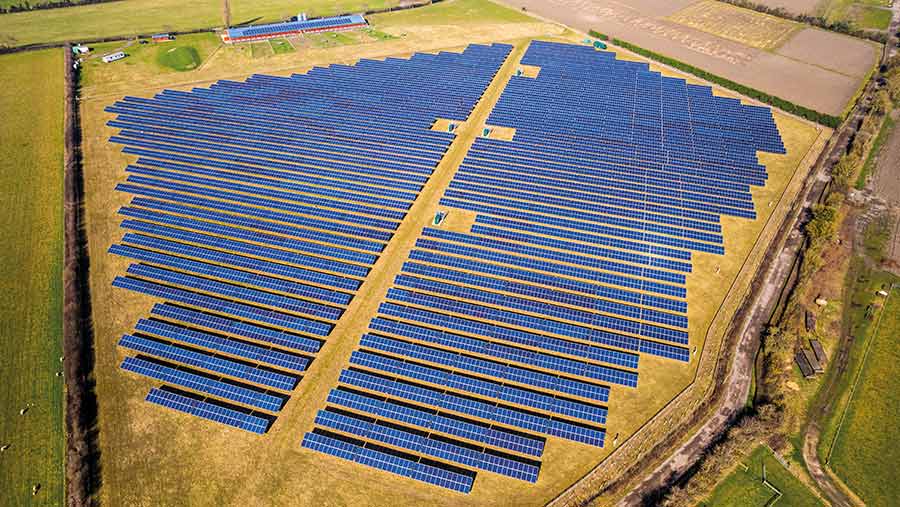Opinion: Mutual gains to be had from developing solar energy
 © Lightning Strike Pro/Adobe Stock
© Lightning Strike Pro/Adobe Stock The UK is facing a major energy crisis. We are aware of the immense challenge this is posing for farmers, with the costs of fuel, fertiliser, gas and electricity all going up.
We also know that a key way to address this is with solar energy. British solar and British farming have gone hand in hand since the beginning of the UK solar industry.
Solar is a flexible technology that can be installed on rooftops – such as grain or animal sheds – and on the ground, in the form of a solar farm.
See also: On-farm renewable energy generation: What to consider
Solar can help cut costs for farmers, by directly reducing energy bills, or by providing extra income from land leased for a solar farm.
About the author

Chris Hewett is chief executive of the trade association Solar Energy UK. Here he explains how farmers and solar companies can work together with a shared agenda.
Agricultural businesses up and down the country have long benefited from both, which is why there was concern in the solar industry earlier in the year when the government’s apparent plan to restrict the development of solar farms on agricultural land was leaked.
We don’t believe the government should tell farmers how best to manage their land, a point echoed by commentators, researchers and think tanks across the political spectrum.
Environmental groups also criticised the idea as being contrary to the UK’s net-zero goal, while diminishing energy security.
So we were glad to see the recent comments from Defra secretary Therese Coffey and farming minister Mark Spencer, confirming that solar and agricultural businesses can continue to work together to develop high-quality solar projects.
The income solar farms provide can help ensure UK farmers remain able to take appropriate decisions on managing their land.
We also know that solar energy offers many other benefits for the British countryside – for example, by delivering biodiversity gain and ecosystems services, including the creation of new pollinator habitats.
Solar Energy UK is working with academic experts to carry out long-term ecological monitoring around solar farms, and we are keen to identify case studies as part of this research.
This work builds on the biodiversity best practice guidance that we published this year, in collaboration with the NFU and environmental groups.
The guidance provides a framework to ensure good practice on all solar farms, facilitating multipurpose land use, and supporting income diversification for farmers.
Farmers have said that the rental income from a solar farm can provide welcome stability, given the very challenging economic environment.
So I also read with interest the recent Farmers Weekly feature on the potential for new revenue streams from biodiversity credits.
Given the potential of solar farms to generate these credits, I would be keen to hear from farmers on this topic.
Of course, there are other challenges in the farming sector and we know the importance of working together.
I would, therefore, be interested to hear how best we can collaborate as the government develops the upcoming Land Use Framework.
This will be a vital, industry-wide discussion. The solar industry wants to learn from farmers about how best it can support agriculture.
It is important and we are committed to ensuring that our countryside remains a dynamic space, producing food and energy for the nation while supporting environmental benefits.
The solar industry stands ready to work with the UK’s farmers in support of this: promoting multi-functional land use, creating jobs, increasing biodiversity, reducing bills and addressing climate change.
